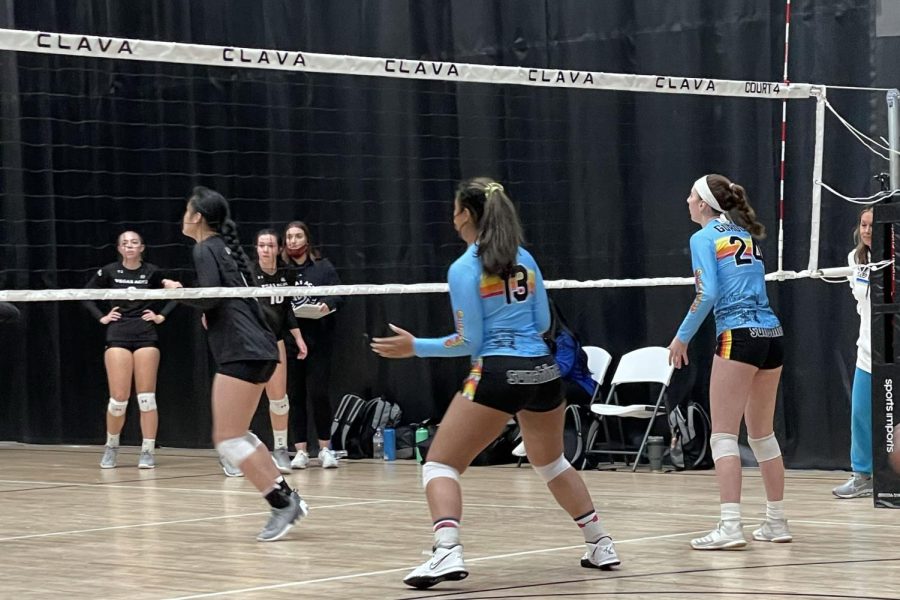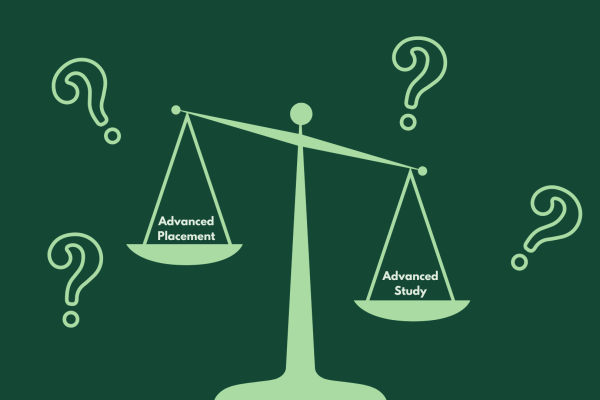Op-Ed: Take a walk or run in my shoes
I shuffle laterally across the net as I prepare to jump in the air and block the opposing team’s offensive attack. On a day-to-day basis, I also feel as though I have to “block” or combat the ignorant assumptions and comments that people will make when discussing my college journey.
March 29, 2022
Perception: “A way of regarding, understanding or interpreting something; a mental impression.”
To curate perceptions about other people is a natural part of the human experience. Whether you associate someone’s fashion sense with their zodiac sign or the genre of music they listen to with their personality traits, we constantly create narratives of people we don’t know. Or better yet, people we “think” we know. By only viewing our own interpretations or judgment as the full picture, we allow our perceptions to manifest into unnecessary ignorance and jealousy.
My personal journey as a student-athlete has been one filled with great triumphs and defeats, both on the court and in the classroom. The invaluable lessons I’ve learned while playing sports has helped mold me into the person that I am today, with a strong work ethic, determined mindset and focused vision on my future.
For many athletes, whether they play at the high school, collegiate or professional level, the countless hours they will devote to perfecting their craft is often done behind closed doors, away from public scrutiny. This is where perception often creeps in, prompting outsiders to view student-athletes’ lives as a cakewalk or unfair advantage.
According to the Next College Student Athlete forum, “there are over 500,000 student volleyball players on high school teams. Of those players, around 1% make it on to an NCAA Division I team in college.”
Just 1%. This statistic showcases the limited number of opportunities for student-athletes, specifically volleyball players, who are interested in playing at the next level. News flash: Division I scholarships aren’t distributed like free food samples at Costco. In actuality, being able to play at the collegiate level requires skill and sacrifice in more ways than one, whether it be managing your schedule or devoting your free time to an extra workout or practice. Above all, however, the one thing that I chase more than anything is time.
As a student-athlete, not only do I need to maintain a high GPA and a diverse range of extracurricular activities, I also have to embrace the pressure when coaches come to watch me play and determine if I can benefit their team or not.
— Vaughan Anoa'i ('22)
Time for practice, time for school, time for extracurriculars, time for family, time for friends and most importantly, time for myself. I have to walk on a tightrope each day where something has to be sacrificed in order to make room for other priorities and commitments.
I chose to be a student-athlete and certainly receive praise for what I’m able to accomplish on the hardwood. However, ignorant comments remain rampant, including but not limited to:
“Wow, I wish I could bounce a ball and my future would be set for me.”
“I can’t compete with a Division I athlete, I have no chance with admissions.”
“I wish I played sports — your life is easy.”
“Athletics just walked you into any college you wanted, right?”
“I’m sure you didn’t have to take any standardized tests to get in.”
“You probably didn’t even have to fill out the application.”
“Your grades don’t even matter, all they care about is how you play.”
Being on the receiving end of these types of comments can be commonplace for athletes, but it’s important to not dwell on them. In full transparency, however, it gets exhausting both answering and combatting the same questions whenever I tell someone where I will be attending college in the fall. In theory, the person could have simply said, “Congratulations” or better yet, nothing at all.
I have had my 12-hour days of virtually endless work be diminished and shrunk down to a two-second comment.
Even though I do not need others to validate the hard work, dedication and effort that I’ve put forth, it is beyond hurtful and frustrating to be told time and time again that I am “lucky” to be in the position that I am now, implying that my college journey was easy. Let me tell you what is actually “easy.”
Immediately going home after school.
Sleeping in on the weekends.
Not having to miss birthday celebrations, school-wide events or spontaneous hangouts.
Having a more flexible schedule to complete schoolwork.
But do you know what’s easiest of all? Minding your own business.
I do not judge you, so why judge me? I never told you how lucky you were to not play a sport.
These unnecessary comments seemingly erase all of the hard work that is being done when no one is looking, or more often than not, when everyone is watching your every move. As a student-athlete, not only do I need to maintain a high GPA and a diverse range of extracurricular activities, I also have to embrace the pressure when coaches come to watch me play and determine if I can benefit their team or not.
A wise man once told me, “You never know what’s going on in someone else’s life.” This sentiment rings true in many circumstances and is something that I feel we can all learn to grow from. Thinking before you speak is not a rule that should be limited to children in grade school, for this is a life lesson that transcends beyond common courtesy and respectability.





![Freshman Milan Earl and sophomore Lucy Kaplan sit with their grandparents at Archer’s annual Grandparents and Special Friends Day Friday, March 15. The event took place over three 75-minute sessions. “[I hope my grandparents] gain an understanding about what I do, Kaplan said, because I know they ask a lot of questions and can sort of see what I do in school and what the experience is like to be here.](https://archeroracle.org/wp-content/uploads/2024/03/grandparents-day-option-2-1200x800.jpg)





























































Raiza M. • Mar 31, 2022 at 3:22 pm
Vaughan, you continue to awe and inspire me! I’m so proud of you and this piece barely scratches the surface of your amazing work ethic and your phenomenal athletic drive and skill! I hope other student-athletes and those who support them (and even those who don’t and judge them instead), really take your words to heart!
Carmen • Mar 31, 2022 at 10:20 am
VaughnRyan you are a breathe of fresh air. As a parent raising a student athlete I often hear her complain about the social events she is missing for the dream she is chasing. Your authenticity and transparency will help student-athletes for years to come. It’s not ease and I’m so impressed with the dedication, time and effort it takes and their steady commitment. I wish you endless success and continue to use your voice. You are truly a champion the world needs. Congratulations on your next chapter.
Tiffany Smith-Anoa'i • Mar 30, 2022 at 5:47 pm
As someone who has witnessed your college journey up close and personal, I can testify and confirm that this Op-Ed is exactly as you so eloquently described.
I commend you for writing your personal experiences and encourage you to continue speaking and writing truth to power!
BRAVA!